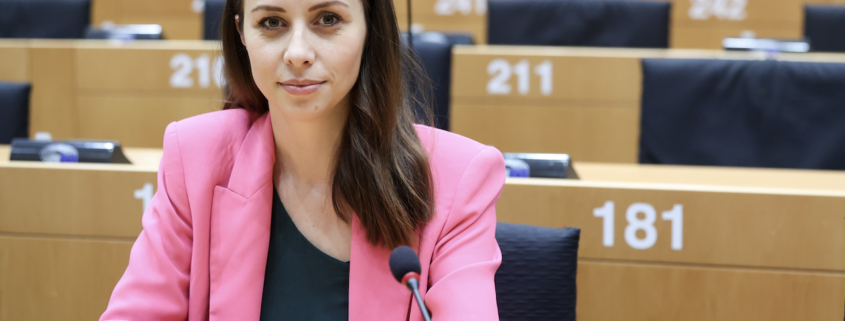The process by which something that is worn out, damaged, becomes as good as new.
The definition of restoration.
There are many things on our planet that are worn out, damaged. Many of them so much so that, unfortunately, the process described above is impossible. And, sadly, the vast majority of it is down to humans. But there are still things that can be fixed. Restored. At least partially.
And one would expect – at least those of us who are aware of our responsibility to the planet – that politicians would be ‘fighting each other’ to go down in history as the greatest advocates of the environment. Fighting to show more ambition, to protect nature more.
But the opposite is happening. Self-serving politicasters and opportunists prefer to conspire against the legislative text that is the least suitable to be the subject of political infighting and, above all, of false information.
I am speaking about the Nature Restoration Law, which we voted on today. The manipulators have failed, the bill was not defeated, negotiations will continue. This is a victory, but with a bitter aftertaste.
Those of us MEPs who are genuinely concerned have shown that we care. For the environment, for climate neutrality, for the future. On the other hand, the other MEPs, too, are genuinely concerned and have shown that they care. About themselves.
I have a message for them. And a few questions.
… When speaking about the restoration of ecosystems. Land, coastal, freshwater, marine, urban ecosystems. The forest ecosystem. The agricultural ones! When speaking about restoring pollinator populations. About natural environments that have already been destroyed, damaged, exploited.
How can there still be people who claim that this legislation is “dangerous” or “unnecessary”? This is yet another classic case of politicising the matter to scare the masses. They spread fear by claiming, for example, that Article 9 of this law which aims to increase land conservation and biodiversity will drastically reduce food production, which is completely misleading.
Should we really do something for our bees and other pollinators, or should we just talk of them with pride when enjoying honey or talking to someone from abroad?
What about all other animals, plants and their diversity? Are we really not tearing up the ground beneath them – sometimes literally?
Where we have drained peatlands, have we really not caused the collapse of the ecosystem? What if we cut down a forest and don’t replace it?
Do we want more trees alongside new motorways, new high-rise buildings and shopping centres? I would dare to say that the planet is already “boiling” enough.
The renewal rates that we are talking about hover around some ten per cent, and in my opinion they are already too low, while some would prefer to halve the ambition. In fact, certain amendments adopted today have significantly weakened the text.
I repeat: it’s about RESTORATION – and only as a proportion of the total damage. Damage that humankind – we, as society, our economies, our desire for more – has inflicted on animals, plants, the environment.
And the worst thing? That it is not “only” climate change (which is reflected in long dry spells, devastating floods, hail and other unpredictable crop-destroying climatic events), biodiversity and ecosystem loss, including that of pollinators, and (excessive) pest control that pose the biggest threats to food security, fisheries, agriculture and forestry. Rather, such threats also originate from political manipulators, opportunists and hypocrites.
… Who score political points on the backs of farmers. The latter have long been the victims of insufficient legislation that would protect and preserve nature and the environment, and guarantee them greater crop stability and thus a better livelihood. I therefore also have a message for everyone in the agricultural industry. You must be aware, I am sorry to say, that the representatives of the European People’s Party and all those who opposed the proposed legislation under the pretext of ensuring sufficient agricultural land and food security, have achieved its exact opposite.
As a society, we put a value on everything. In terms of a price, profit, capital. We place a much lower value on human beings. And none whatsoever on nature.
It’s high time we ALL started to realise what is really important for life on this planet.
Gluttony … will eat us up.
– Irena





Leave a Reply
Want to join the discussion?Feel free to contribute!